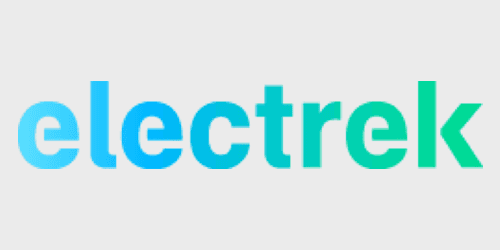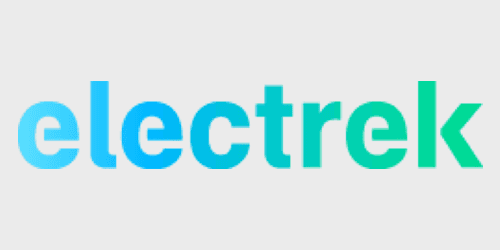
J.N. Auto, a longtime independent car dealer in rural Quebec, made the transition from selling and servicing used gas vehicles to used electric over five years ago, and even more recently to being one of the largest independent retailers of brand-new Tesla Model 3s anywhere on the planet. Here’s the story of how an independent used car dealer took on new EV sales absent a franchise agreement.
Founded in 1982, J.N. Auto is located about two hours east of Montreal, and five hours north of Boston, serving a rural region known as Quebec’s Eastern Townships (Cantons de l’Est). Ten years ago, they had a business model like any other used car and truck dealer, with a volume of about 600-700 used cars sold annually.
The passion and vision to become an EV dealer
Sébastien Marcotte has worked in car sales since 1998. His first EV was a 2013 Ford CMax Energi, and he was immediately hooked. The PHEV gave him his first taste, and months later added a Nissan Leaf as the second family vehicle.
People in rural areas have much longer commutes and spend a lot more on gas, and Marcotte saw the potential for EVs to improve not just the environment but also the financial well-being of his customers and community. In 2015, he bought into the business, and set about transforming J.N. Auto into one of the biggest independent EV dealers. All of Quebec’s electricity is clean, renewable hydro and is generated, transmitted, and distributed by the provincially owned Hydro Quebec, which also operates an impressive network of more than 2,350 charging stations. Marcotte’s dream is for all of Quebecois’ driving to be powered by the province’s majestic lakes and rivers.
Three key things made J.N. Auto’s transformation a success.
Getting the inventory
In the first year, they went from an average of five EVs on the lot to 30. These were mostly Nissan Leafs and Chevrolet Volts, because that’s what was available, but they were keen to always have a broad range of inventory for their customers. Having an array of options on the lot is critical for customers to have the confidence to pull the trigger on any particular model.
Canada hasn’t had the same aggressive ZEV mandates as California, so there weren’t as many used electrics floating around. So J.N. Auto started importing used EVs from the US en masse: Leafs, Chevy Bolts, Chevy Sparks, and BMW i3s.
For the VW eGolf, Kia Soul EV, and Hyundai Ioniq EV, they could only source from Canada, because those manufacturers won’t honor the warranty once the car crosses the border.
With the exception of GM dealers keeping the Bolt in stock, most other OEM dealers in the region don’t keep big-battery EVs on their lot. It can take several months if not more for EVs like the Hyundai Kona, Kia Niro, or Nissan Leaf 60kWh to get to a customer here. This is a loss not just for those brands but also their franchised dealers. Customers get fed up waiting, find their way to J.N. Auto, and wind up saving a lot of money by discovering that a used EV often suits their needs just fine.
Nowadays, J.N. Auto will have over 50 EVs on the lot available for customers’ inspection, usually with the following models: Tesla 3, S, and X, Nissan Leaf, Chevy Spark and Bolt, Kia Soul EV, VW eGolf, Mitsubishi Outlander PHEV, Ford Cmax PHEV, Honda Clarity PHEV, Toyota Prius Prime (PHEV), and Hyundai Ioniq EV. They used to sell a lot of Smart EVs and Mitsubishi i-MiEVs as well in the earlier days. They still wish they had more inventory.
Taking online used EV sales seriously
Anyone who knows EVs knows the challenges of searching for used EVs online. Many franchise dealers and online search engines jam EVs into directories designed for ICE vehicles with categories like engine size and transmission. Vital EV information like battery size and charging speeds (both AC and DC) is missing entirely.
But beyond organizing the specs in a more helpful way, they offer what should hopefully become a much more common service in the future: They disclose the battery health of their used EVs. While not an exact science, they’ve published to their YouTube channel their method of evaluation (in this case, for Nissan Leafs):
Having a serious online presence, and demonstrating their EV expertise, has led them to win customers from beyond the Eastern Townships and even outside of Quebec.
Short-term rentals
While less of a need today, in the early days with smaller batteries — and smaller official ranges — it took a bit more work convincing customers a used EV could work for them. So rather than rely on verbal persuasion, J.N. Auto decided to start offering short-term rentals, up to two weeks. Half the rental can be reimbursed if you purchase the vehicle. Most customers came back in love with their car after two or three days, and were ready to buy.
Uncharted: Selling new Teslas as an independent dealer
J.N. Auto had already sold a lot of used Teslas when the Model 3 came out in 2018 (in Canada). Right away, existing customers started to ask if they’d be able to rent a Model 3 under J.N.’s short-term rental service. So J.N. ordered a single Model 3 and put it into the rental pool. Demand was through the roof, people loved it.
Those same rental customers would share with J.N. the prices Tesla was offering them for their trade-ins. They’d ask if J.N. Auto could do better than Tesla, while helping them avoid a trip to Montreal. J.N. Auto figured they could make it work. A couple weeks after ordering that first Model 3, J.N. Auto started ordering brand new Model 3s, three at a time, from the Montreal store. They would order them online just like anyone else, paying full freight. They now buy Model 3s by the trailer-full, with hundreds sold. J.N. also has orders in for Rivian’s R1T and expects to do the same with them.
If you’re an early adopter, you personally may not care so much about local service and support, but it’s paramount for most car buyers. On their website, J.N. Auto explains the difference between buying a brand-new Tesla from Tesla versus buying it through them. They’re not knocking Tesla’s online sales strategy in the least, they support it. They list their own markup over Tesla’s retail price publicly on the website. But for many customers, whether it’s because they’re getting a better trade-in price, or because they appreciate the local service and support, they choose to buy a new Tesla through J.N. Auto.
The staff at J.N. see this more as a transition. Eventually, the inventory of used EVs will be plentiful enough that they can get back to being a strictly used EV dealer.
Electrek’s Take
When talking about dealers and EVs, we inevitably think about the future of the franchise-dealership model. Rivian has decided to follow Tesla’s path and forego franchise dealers. That decision has been almost uniformly well-received in the EV community. But maybe there’s room for new EV entrants like Rivian to get creative here, working with independent dealers who have EV expertise and passion.
There’s room for a mutually beneficial relationship without demanding franchise exclusivity. At the no-brainer end, Rivian (or Tesla!) could help independent dealers help with the usual support manufacturers give to their retailers (e.g., point of sale materials), or maybe go so further. For example, offering independent dealers a demo unit loaner if they’ve proven they can hit a certain monthly volume. Or whatever, sky’s the limit. It’s good to think beyond the false dichotomy of franchise-dealer rigidity and total vertical integration.
FTC: We use income earning auto affiliate links. More.





Comments